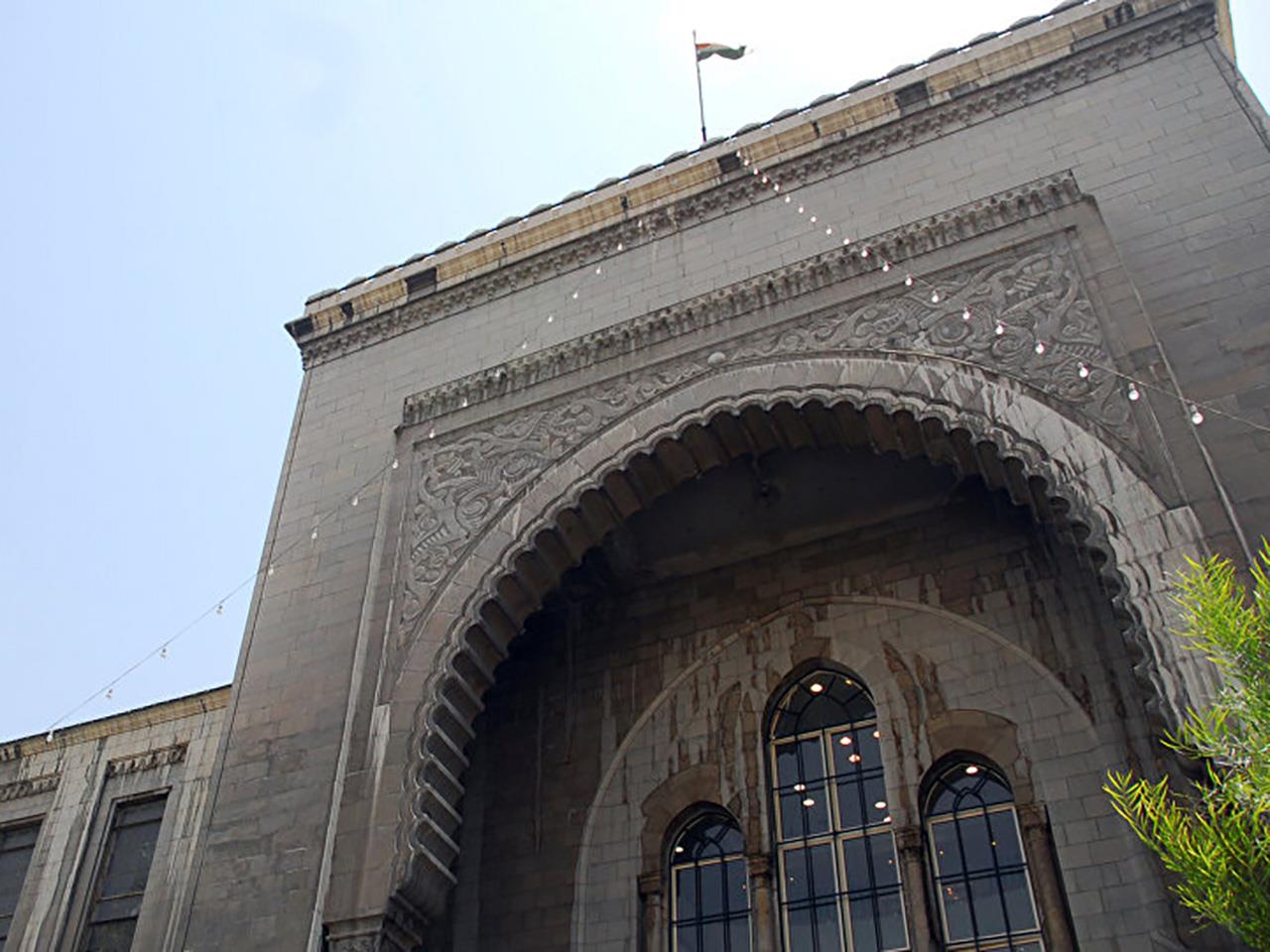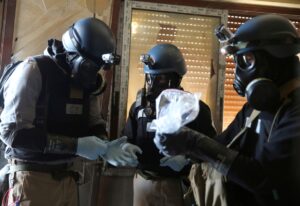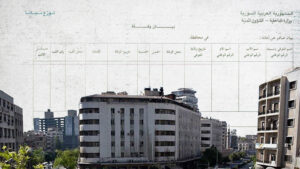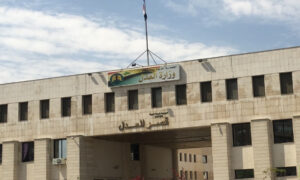Details of the amnesty decree according to Syrian law:
President Bashar al-Assad of the Syrian regime issued Legislative Decree No. 36 for the year 2023, which grants a general amnesty for crimes committed before November 16, 2023. The decree comprises 19 articles in four chapters.
Chapter One: Full Pardon
Full pardon for misdemeanors, violations, and all measures of juvenile rehabilitation and care.
Full pardon for those with incurable diseases requiring assistance for personal needs, serving life or temporary sentences.
Full pardon for individuals over seventy years of age with final judicial sentences.
Full pardon for crimes of weakening national sentiment, inciting racial or sectarian strife, or undermining the nation’s morale during wartime, as per Articles 285-286 of the Penal Code.
Full pardon for Article 1 of the crime of kidnapping as defined in Legislative Decree No. 20 of 2013, involving kidnapping for political, material motives, revenge, sectarian reasons, or ransom, including physical or psychological torture. The decree requires the safe release of the kidnapped person within 10 days of its issuance.
Full pardon for the crime of possessing, buying, transferring, receiving, and delivering narcotics intended for personal use not legally permitted, as per Article 43 of Law No. 2 of 1993.
Full pardon for the crimes of internal and external desertion, as per Articles 100 and 101, and for desertion by conspiracy, as per Article 103, excluding the conspiracy leader and those defecting to the enemy, under the Military Penal Code established by Legislative Decree 61 of 1950.
A specified period is set for deserters to surrender: three months for internal desertion and six months for external desertion.
Chapter Two: Partial Pardon
Half the misdemeanor sentence for crimes breaching official duties, including bribery (Articles 341-345), abuse of influence (Articles 347-348), embezzlement, and job exploitation (Articles 349-355).
Half the sentence for crimes against public authority, including breaking seals and removing official documents (Articles 386-387).
Half the sentence for crimes breaching public trust, including forgery of state seals and official marks of Syrian or foreign public administration, and their use (Article 428), and for forgery of official records (Articles 450-451) by those holding public office or medical or health professions (Articles 453-455).
A third of the temporary criminal sentence (temporary detention and hard labor) as per Articles 37-38 and a third of the sentence for juvenile crimes under the 1974 Juvenile Delinquents Law No. 18.
Half the sentence for misdemeanors involving military personnel losing their weapon through negligence, lack of precautions, or non-compliance with laws and regulations, and for crimes of selling, mortgaging, misappropriating, or dishonestly handling military-issued weapons (Article 134 in reference to Article 133, excluding sections E and W).
Punishment Modifications
The death penalty is reduced to life imprisonment.
Life imprisonment is reduced to a temporary prison sentence of 20 years.
Perpetual detention is reduced to temporary detention for 20 years.
The amnesty decree requires the waiving of personal rights by the victim and allows victims who have not previously filed a claim to do so within 60 days.
Chapter Three: Exceptions from the Amnesty
The amnesty decree excludes the following crimes:
Crimes against external state security:
Treason (Articles 263-264-265-266-268), excluding Article 269, which pertains to treason committed with a state allied with Syria through a treaty or an equivalent international document.
Espionage and illicit relations with the enemy (Articles 271-272-273-274-275-276-277).
Crimes against internal state security:
Terrorism, specifically acts leading to human death (Article 305, Paragraph 3), consistent with Amnesty Decree No. 7 of 2022.
Formation of illegal associations: Crimes involving gangs and armed groups intending to rob passersby or assault people or property, if leading to murder or torture (Article 326, Paragraph 3).
Crimes disrupting judicial proceedings:
- Perjury (Articles 497-498).
- False reporting and translation (Articles 402-404).
- False swearing (Article 405).
Crimes affecting the family:
Incest between ancestors and descendants (Article 476).
Kidnapping or hiding a child under seven years old, exchanging one child for another, or attributing a child to a woman who did not bear it (Article 478).
Crimes of incitement to immorality and offenses against public morals:
- Rape (Articles 489-490-491-492).
- Obscenity (Articles 493-494-495-496).
- Obscenity using influence and authority (Article 499).
- Kidnapping by deceit for the purpose of marriage or immoral acts (Articles 500-501-502).
- Unnatural sexual acts (Article 520).
Crimes involving complete prohibition:
Arson (Articles 573-574-575-577-578).
Assault on crops, livestock, and agricultural machinery by an armed group of at least five people, involving theft and destruction.
Crimes specified in the Military Penal Code, including soldiers bearing arms against the Syrian army (Article 154), military treason and dealings with the enemy in peacetime (Article 155), cooperation with the enemy in wartime (Article 156), failure to report known crimes (Article 157), spying for the enemy (Articles 158-159), recruiting for the enemy (Article 160).
- Transporting goods to enemy countries (Legislative Decree No. 68 of 1953).
- Prohibition of dealings with Israel (Law 286 of 1956).
- Prostitution (Prostitution Suppression Law No. 10 of 1961).
- Smuggling of taxed or prohibited goods for import/export (Legislative Decree 13 of 1974).
- Membership in the Muslim Brotherhood (Law No. 49 of 1980).
- Smuggling of weapons and explosives (Legislative Decree No. 51 of 2001).
- Unlicensed currency exchange or money transfer (Law 24 of 2006).
- Crimes specified in the Terrorism Suppression Law No. 19 of 2012.
- Building violations (Legislative Decree No. 40 of 2012).
- Economic and financial crimes (Economic Penal Code, Law No. 3 of 2013).
- Transactions in currencies other than the Syrian pound (Legislative Decree No. 54 of 2013).
- Forest-related crimes, intentional arson in forests or forest reserves (Article 29 of Law No. 6 of 2018).
- Crimes specified in the Internal Trade and Consumer Protection Law (Law No. 14 of 2015 and Legislative Decree No. 8 of 2021).
- All types of fines.
Chapter Four: General and Final Provisions
The decree conditions benefiting from the amnesty or sentence reduction on the convicted person’s payment of amounts, compensations, and obligations adjudged for the benefit of the prosecuting party and the submission of a personal right waiver.
The decree differentiates between cases for amnesty eligibility in felonies and misdemeanors as stated in Articles 628 to 659 of the Penal Code. If the public lawsuit has not been initiated or is in trial, amnesty benefit requires a personal right waiver, or the victim is given 30 days to pay an advance claim fee. If the fee is unpaid after this period, the decree applies, and the defendant benefits from the amnesty.
Upon the issuance of a final judgment, the convicted person benefits from this legislative decree by paying the adjudged obligations, which substitutes for waiving personal rights.
The decree grants a six-month period for fugitives in partially included felonies to surrender themselves to benefit from the amnesty.
Legal Analysis of the Amnesty Decree:
The Syrian regime considers this decree a step towards tolerance and national reconciliation. However, the decree is criticized for lacking a genuine spirit of forgiveness and containing legal deceit. It’s seen as an attempt by the Syrian regime to signal a change in approach, promising amnesty for contrived charges against Syrians, especially opponents. However, a technical legal reading reveals it’s not significantly different from previous decrees, posing a severe risk to those considering surrendering within the legal timeframe. The decree is especially deceptive for detainees on fabricated charges, as it’s unlikely to lead to the release of many imprisoned by the regime.
For Civilians:
Crimes against external state security are the legal tools used by the Syrian regime and its security forces to level charges against opponents. The decree includes Articles 285-286 but excludes other crimes typically charged against refugees and displaced persons outside the regime-controlled areas. Additionally, security branches have ready-made templates for espionage and external collaboration charges, which are arbitrarily applied to opponents abroad or detainees. The decree’s legal farce is evident in its exclusion of Article 269, related to treason with allied states.
Kidnapping Charge:
When Decree No. 7 of 2022 was issued, it was analyzed as a charge frequently directed by security branches at detainees. The current amnesty includes kidnapping but only under Article 1, with a condition of releasing the kidnapped person within 10 days of the decree’s issuance, an impossible task for detainees falsely accused of kidnapping.
Terrorism Charges:
The decree excludes terrorism crimes under Law No. 19 of 2012 and follows the same approach as Decree No. 7 of 2022, excluding acts leading to human death. The vague wording allows any act to be attributed to the accused, even if it didn’t directly result in death, leaving room for judicial and security manipulation.
Cybercrime Law:
The decree doesn’t include the Cybercrime Law, which carries punishments ranging from 3 to 15 years and fines. The law’s vague language makes it a tool for fabricating charges against opponents and critics.
The decree’s requirement for personal right waivers opens doors for security apparatus extortion through fabricated charges.
For Military Personnel:
The situation for military personnel under this decree is not better than for civilians. Although the decree pardons crimes of internal and external desertion, it excludes crimes punishable by death. These include:
- The crime of leading a conspiracy and deserting to the enemy (Article 103).
- Treason and dealing with the enemy in peacetime (Article 155).
- Cooperation with the enemy during wartime (Article 156).
- Failure to report known crimes (Article 157).
- Spying for the enemy (Articles 158-159).
- Recruiting for the enemy (Article 160).
The Syrian regime considers armed opposition groups in liberated areas as rebels and Turkey as a hostile state. Therefore, military personnel who did not join service and fled to these areas or Turkey can be prosecuted under these articles and will not benefit from the amnesty. The judicial system, controlled by security agencies and lacking independence, can change the crime’s classification to include desertion to the enemy. Defectors who joined or established these groups are not covered by the amnesty and are subject to the military penal code’s provisions, including death penalty.
The decree allows the investigative judge or court to change the crime’s classification to increase or decrease the punishment. A judicial precedent states, “The court may change the crime’s classification to be more or less severe” (Case No. 2135/2009, Decision 2180, Rule 250, Page 783, Lawyers’ Magazine Nos. 6 and 5, 2011). This leaves military personnel at the mercy of the Syrian regime, its security agencies, and the corrupt judicial authority.
The Syrian regime aims to use this decree to conscript additional young men for military service, either for future battles or to maintain controlled areas. The decree covers those who have deferred mandatory and reserve military service. This comes amidst a shortage in the human reservoir, especially as the militias supporting the regime have become a significant economic burden. The shortage in regime forces is attributed to the emigration of young people, including regime supporters, due to the country’s economic collapse, unemployment, and poor services.
The decree does not address the fate of those forcibly disappeared or held in security branches without trial. This significant number of detainees will not be covered by the amnesty, as the regime does not acknowledge their existence. Therefore, the decree is considered inadequate, and the Syrian regime is unlikely to release a large number of these detainees.
The Decree’s Risks and International Implications:
The decree coincides with the International Court of Justice’s decision after international condemnation. It’s a tactic by the Syrian regime to overwhelm the international community with details and distract Syrians. The regime released the decree as a message of its supposed tolerance and willingness to release detainees, potentially eliminating future torture claims. This strategy was previously observed during the Tadamon massacre scandal, after which Decree No. 7 of 2022 was issued.
The decree is used by the regime to promote the idea of national reconciliation and the return of refugees, especially amid current international political efforts to solve the Syrian refugee crisis. However, this poses a real danger, as forced returnees face arrest, torture, and other human rights violations. Reports by Human Rights Watch titled “A Life Like Death” and Amnesty International titled “You’re Going to Your Death” document cases of returnees facing arrest, torture, physical and sexual abuse. Recent decisions by the UN Working Group on Arbitrary Detention on the arrest of returnees from Rukban Camp highlight these violations.
Attachments:
– Media Interview on Syria TV about the Analysis of the Amnesty Decree FSLA
– Legal Statement from Al-Arabi Al-Jadeed Website on the Analysis of the Amnesty Decree – FSLA
– Legal Statement from Syria TV Website on Amnesty Decree Analysis – FSLA
– Legal Statement from Al-Sharq Channel on Amnesty Decree Analysis – FSLA





